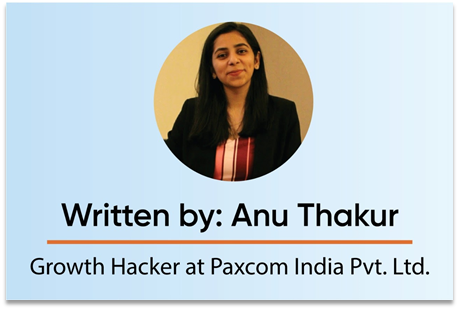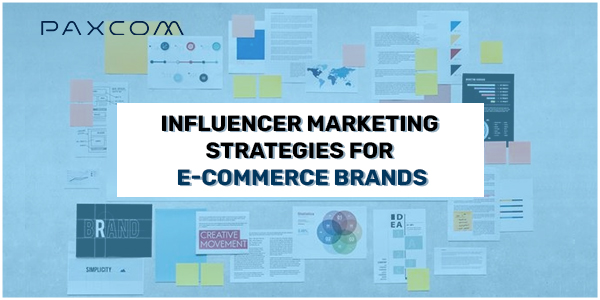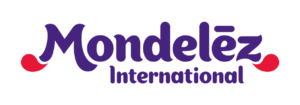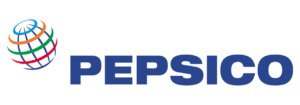Most of the eCommerce Platforms already come with a large customer base, they have their marketing teams working day and night to improve their presence in the market trying to capture and convert every next person.
Keeping all this in mind, why do brands still bother to invest in Influencer marketing? To put it in simple words, it helps your brand drive additional traffic to these channels, also, influencers are able to convert visitors into loyal customers by making them believe in the product.
For those who don’t know what Influencer Marketing is, it is when individuals with a large social media following who are experts in a particular field talk about and share their views and perspectives on a product or service, and through this practice, consumers get to discover new products, read and listen to their views on the products, and learn new ways of using them.
These consumers have chosen to follow those influencers, and hence, they trust their choices, agree with their opinions, and whatever they say becomes accurate for them. As marketers, we can utilize this opportunity by partnering with these influencers who basically act as idols to their large social media following.
One thing to be kept in mind is that there should be alignment between your brand and the influencer you are choosing to represent your product. It’s crucial that you do enough research before signing in to any influencer and make sure that they don’t have any complex history that can affect your product/brand later.
Table of Contents
Important factors to consider while creating your influencer marketing strategy include
What are your brand’s objectives?
The first factor to keep in mind before launching your influencer marketing campaign is the objective behind it.
- Are you aiming to increase sales or just brand visibility?
- Do you want to drive traffic to your brand store or directly to a particular product detail page or to your website?
All of the following steps/factors will highly depend on your objective. For example, if you want to increase traffic to your newly launched brand store, you should ask the influencer to include a link to your brand store in all of their communications.

The Influencers should be aligned to your brand image
Let’s say you are selling a baby care kit on Amazon. Your target is to attract new mothers or mothers who are expecting. To bring traffic to your Amazon page, you would definitely want a mom influencer to promote your product rather than someone who is in their teens trying to make people laugh in their free time.
It’s vital that the content influencers share is representative of who you are as a brand. If not, then they might end up confusing customers, and ultimately, this will lead to degrading your brand image.

Amazon Influencer Storefront is Important
Influencers share their daily routine, habits, their requirements, the products/services they use in public, and their followers tend to follow their habits religiously. Followers not only buy the products they use, but they also share them with their friends and family.
And that’s the reason the followers need to know from where these influencers buy these products from. Amazon has introduced a new storefront feature wherein influencers are allowed to add their product lists to a separate store page on Amazon, allowing their followers to shop from that store, making their lives easier.
It is important that the influencer you are hiring should have an Amazon storefront to which the visitors will be redirected in case they are interested in buying the products the influencers are using.
Some examples of the Amazon storefront:
Travel Influencer: https://bit.ly/3vvqUnU
Lifestyle Influencer: https://amzn.to/30DpbRW
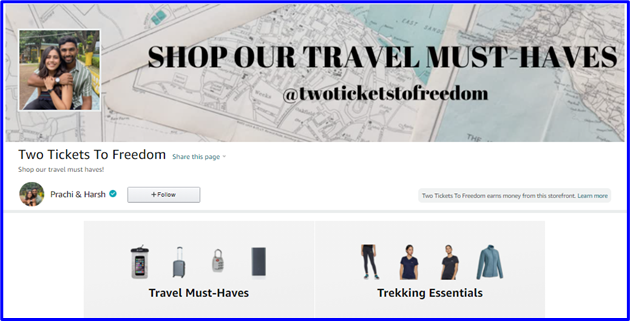
Quality of Content
When any influencer is representing your brand, it becomes of utmost importance for the brand to choose them on the basis of the quality of the content they produce as they are the direct representatives of your brand/product. To uphold how your brand is perceived, work only with influencers who produce high-quality content. This is a necessary part of designing your influencer campaign.

How much engagement do they drive?
By engagement, we mean the number of likes, shares, saves, and comments. It’s common for influencers to have more significant followings but very less engagement on their social media channels.
There are influencers who usually tend to buy these followers’ bases, and that’s the reason no one cares to engage with their content. A marketer should look out for influencers who not only have good enough followers but an excellent engagement rate too.
As a good rule of thumb, a 2%-3% engagement rate is standard, and 4%-6% is considered a good rate.

What is your influencer marketing strategy budget?
How many followers and the type of influencers all depend on your goals and the budget you have for your influencer marketing strategy. You can connect with smaller influencers who have an initial following between 5-10k, or you can reach out to the larger ones who have a reach of lakhs of followers. It all boils down to the amount you can spend on these activities.
If you are low on budget and just starting out, then you can go for a barter system where you send your products to the small influencers, and in exchange for the goodies, they will put up posts on their social media channels.
While these are small influencers, they usually tend to have more engaged & authentic followers. Choose your influencers wisely and according to your budget.

What Paxcom can do for your brand?
Paxcom has been helping brands list their products on various eCommerce channels. It offers an end-to-end solution, from creating content to running advertisements on eCommerce platforms–all intending to maximize revenue. We tailor the solution to meet your specific needs by utilizing the expertise of our team, as well as existing resources and technology.
Here are some additional services you can expect from our eCommerce experts
- Adding/relisting new/old products, creating product variations, creating high-resolution lifestyle images, revising product titles, bullet points, descriptions, A+ content, creating brand stores for increased purchase rates.
- Planning and monitoring inventory through the use of a custom-built in-house tool, Kinator.
- Designing and executing pay-per-click advertising campaigns, managing budgets, analysis, and recommendations.
- Managing promotions – Deals, coupons, combos for higher sales traction.
- Implementing display and banner advertisements on different channels and updating brand stores for greater visibility.
- Offering data analysis services with key insights on the major KPIs (content scorecard, reviews, and ratings, organic visibility) to help brands make sound and data-driven decisions.
